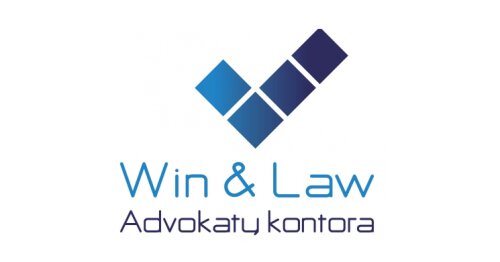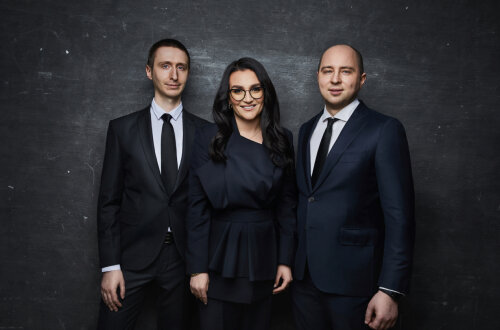Best Collaborative Law Lawyers in Klaipėda
Share your needs with us, get contacted by law firms.
Free. Takes 2 min.
Free Guide to Hiring a Family Lawyer
List of the best lawyers in Klaipėda, Republic of Lithuania
About Collaborative Law in Klaipėda, Republic of Lithuania
Collaborative Law is an alternative dispute resolution process that emphasizes cooperation and negotiation rather than confrontation and litigation. In Klaipėda, Republic of Lithuania, Collaborative Law provides individuals, especially those dealing with family disputes like divorce or child custody, an opportunity to resolve their conflicts outside of traditional courtrooms. The process brings together both parties and their respective lawyers to work toward a mutually beneficial agreement, often using additional professionals such as psychologists or financial advisers if required. The goal is to reach a durable resolution efficiently and amicably while minimizing stress and preserving relationships.
Why You May Need a Lawyer
There are several situations where you might benefit from legal assistance in the context of Collaborative Law in Klaipėda. These include:
- Family law matters such as separation, divorce, and child custody arrangements
- Property division and settlement agreements
- Business or partnership disputes within families
- Disagreements over parental rights and visitation schedules
- Drafting and reviewing collaborative law participation agreements
- Ensuring decisions comply with Lithuanian legal standards
- Understanding the implications of agreements reached out of court
- Mediating conflicts while avoiding adversarial processes and court hearings
Even if you believe the matter is straightforward, having a qualified collaborative law lawyer ensures that your rights are protected and all agreements are legally sound.
Local Laws Overview
In Klaipėda, as in the rest of Lithuania, Collaborative Law is shaped by national legislation such as the Civil Code of the Republic of Lithuania, which governs family and civil matters. Lithuanian law encourages parties to resolve disputes amicably, and the principles are outlined in both family and civil procedure statutes. Collaborative Law is recognized as a formal process, where parties sign a participation agreement committing to honest disclosure and respect. Lawyers play a critical role as both advocates and facilitators. If a settlement cannot be reached collaboratively and a party resorts to litigation, the collaborative lawyers typically withdraw from representation, emphasizing a true commitment to resolution through cooperation rather than court battle. Agreements reached via the Collaborative Law process may require court approval to ensure they align with Lithuanian national law, especially in cases involving children or property division.
Frequently Asked Questions
What is the main difference between collaborative law and mediation?
Collaborative law involves both parties having their own lawyers committed to cooperating, while mediation uses a neutral third party to facilitate negotiation. In collaborative law, lawyers work together, not as adversaries.
Is collaborative law legally recognized in Klaipėda, Lithuania?
Yes, collaborative law is recognized in Klaipėda. Its framework is supported by national laws that encourage out-of-court resolutions and formal participation agreements.
Can collaborative law be used for issues beyond divorce?
Yes, it can be applied to various civil disputes, including child custody, support, spousal agreements, property division, and even certain business conflicts.
What happens if collaborative talks break down?
If negotiations fail, the collaborative process ends. The collaborative lawyers will typically withdraw, and parties may then pursue litigation with new legal representatives.
Are collaborative law agreements enforceable?
Agreements reached are binding once approved by the court, particularly in family matters. Parties should ensure court confirmation when required by Lithuanian law.
Is everything discussed during collaborative law confidential?
Yes, the process is confidential. Communications and disclosures made during collaborative meetings cannot usually be used in court.
How long does the collaborative law process usually take?
The timeline varies depending on complexity, but collaborative law typically resolves disputes faster than traditional courtroom litigation.
Do I need a lawyer to participate in collaborative law?
While not mandatory by law, it is highly recommended to have a lawyer to ensure your interests are protected and the process is fair.
Can agreements reached fit unique family needs?
Absolutely. Collaborative law is flexible, allowing tailor-made solutions suited to each family's circumstances and needs.
What are the costs associated with collaborative law?
Costs depend on the number of sessions and professionals involved. However, collaborative law usually proves less expensive than prolonged courtroom litigation.
Additional Resources
If you require more information or support regarding Collaborative Law in Klaipėda, consider the following resources:
- Chamber of Advocates of Lithuania - Regulates the legal profession and provides lists of qualified lawyers
- Lithuanian Lawyers Association - Information on alternative dispute resolutions, including collaborative law
- Klaipėda District Court - For court approval and procedural queries
- State Guaranteed Legal Aid Service - Possibility of state-provided legal aid in certain circumstances
- Municipality of Klaipėda Legal Advice Offices - Free preliminary legal consultations on family and civil matters
Next Steps
If you feel that Collaborative Law could help resolve your situation, start by consulting with a lawyer experienced in this field in Klaipėda. Your lawyer can assess your case and explain the collaborative process in detail. Prepare relevant documents, such as marriage certificates, property records, or any existing agreements, to streamline the process. You and the other party will be asked to sign a participation agreement, formally entering the collaborative process. Should you need additional support, such as mediators or counselors, your lawyer can recommend trustworthy professionals. If an agreement is reached, your lawyer will ensure it is properly documented and, if necessary, submitted for court approval. Always prioritize open communication and a willingness to cooperate for the best outcomes in Collaborative Law.
Lawzana helps you find the best lawyers and law firms in Klaipėda through a curated and pre-screened list of qualified legal professionals. Our platform offers rankings and detailed profiles of attorneys and law firms, allowing you to compare based on practice areas, including Collaborative Law, experience, and client feedback.
Each profile includes a description of the firm's areas of practice, client reviews, team members and partners, year of establishment, spoken languages, office locations, contact information, social media presence, and any published articles or resources. Most firms on our platform speak English and are experienced in both local and international legal matters.
Get a quote from top-rated law firms in Klaipėda, Republic of Lithuania — quickly, securely, and without unnecessary hassle.
Disclaimer:
The information provided on this page is for general informational purposes only and does not constitute legal advice. While we strive to ensure the accuracy and relevance of the content, legal information may change over time, and interpretations of the law can vary. You should always consult with a qualified legal professional for advice specific to your situation.
We disclaim all liability for actions taken or not taken based on the content of this page. If you believe any information is incorrect or outdated, please contact us, and we will review and update it where appropriate.














